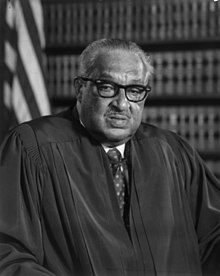Fedorenko v. United States
Fedorenko was a Ukrainian-born soldier who fought in World War II, was captured, and served as a guard at Treblinka extermination camp for over a year.
When the government did file suit, it proved wholly unprepared for trial, owing to the Immigration and Naturalization Service (INS)'s unfamiliarity with the court system.
In June 1941, Nazi Germany invaded the country as a part of World War II, leading Fedorenko to be drafted into the Red Army.
Representatives, Joshua Eilberg and Elizabeth Holtzman, began calling attention to the issue in order to urge the government to root out domestic war criminals.
[19] As a part of this power, Congress passed the Naturalization Act of 1906, which provided that a person could be denaturalized in cases of fraud or where the citizenship was "illegally procured".
While the Supreme Court ruled in Johannssen that a fact that would have been disqualifying if disclosed should be considered material, less obvious cases provoked disagreement.
The Second Circuit ruled differently in United States v. Oddo (1963), arguing that the second prong only required the government to show that a potential investigation could conceivably have turned up more relevant information.
The Court held in these cases that it was the responsibility of the applicant to meet all requirements for citizenship, and that the law did not allow for equitable discretion.
[33] Their names were Eugun Turkowski, Shalom Kohn, Josef Czarny, Gustaw Boraks, Sonia Lewkowicz, and Pincas Epstein.
On cross-examination of Turkowski and Kohn, Gregg Pomeroy emphasized the involuntary nature of the work they had done at Treblinka, looking to bolster his own argument that Fedorenko had served under duress.
One of those witnesses, Nadia Huczar, also testified that many Ukrainians in American or British territory had committed suicide rather than accept deportation to the Soviet Union, fearing it could come with exile to Siberia.
The in-court identification was also ruled invalid, as the court speculated that the two witnesses who correctly pointed out Fedorenko may have been coached following Turkowski's gaffe.
The court, therefore, found that the witnesses' testimony was mostly not credible, and the government had not satisfactorily proved that Fedorenko had willingly committed any atrocities that would disqualify him.
Roettger reasoned, relying on the Ninth Circuit, that an investigation at the time would have found that Fedorenko was forced to work as a guard at Treblinka and would have admitted him.
[39] Fedorenko might have been disqualified on the plain language of the DPA – the disqualifying clause, section 2(a), does not explicitly contain an exemption for duress, while section 2(b) does – but the court ruled that if the persecution clause did not have a duress exemption, it would be forced to deny entry to kapos, an unjust result that necessitated the existence of a voluntariness standard.
Citing the evidence presented in support of Fedorenko's character, including being viewed positively by people around him, Roettger found that his power to make sure the case had a fair outcome – regardless of the law – extended to ruling to preserve his citizenship.
The court reasoned that following the Ninth Circuit would require the government to investigate and conclusively discover disqualifying facts, and then prove them against a high standard of evidence.
In the former situation, the court must consider facts and circumstances relevant to determining whether an individual meets such requirements for naturalization as good moral character and an understanding of the English language, basic American history, and civics.
The Supreme Court granted a writ of certiorari to consider whether Fedorenko's citizenship was cancellable on statutory grounds, and whether equitable discretion could counteract that.
It then held that under the plain language of the act and Jenkins' testimony, Fedorenko was ineligible for his visa, rejecting the district court's interpretation of the voluntariness standards in the DPA.
[50] From there, the Court concluded that Fedorenko's citizenship must be revoked as well; the DPA required that persons admitted under the act comply with all immigration laws in force.
The Immigration and Nationality Act of 1952 provided that applicants for citizenship needed to have been approved for permanent residence, which is impossible without a valid visa.
He reasoned that had Chaunt been applied, its first prong would have had the same effect of disqualifying Fedorenko based on the testimony of Jenkins; the facts, if discovered, would have led to denial of a visa.
On the second prong of Chaunt, Blackmun defended the district court's view that the misrepresented facts would have to lead to the discovery of disqualifying truths to be material.
He argued that if every misrepresentation was subject to scrutiny on the basis that it might have led to the discovery of disqualifying facts, then naturalized citizenship was made too vulnerable and easily revoked when it should be equal to that of a natural-born citizen.
[54] Justice John Paul Stevens dissented, writing that the Court acted on a "theory that no litigant argued, that the Government expressly disavowed".
[56] On the issue of Chaunt, he echoed the view that the government should have to prove that a misrepresentation stymied discovery of disqualifying facts to show materiality.
[61] The director of the Anti-Defamation League told The New York Times that "justice was delayed but finally served",[62] and Michael Bazyler and Frank Tuerkheimer wrote in their book that "the inescapable fundamental fact is that he played a part in a horrendous killing machine that probably murdered several hundred thousand persons on his watch.
[71] Bazyler and Tuerkheimer also discussed duress, arguing that Fedorenko may have had good odds of escaping while on leave, thus rendering his service voluntary.
[73] Lawrence Douglas wrote in a 2016 book that he disliked Roettger's and Stevens' analysis of the duress question, as he saw it as morally equating kapos with guards such as Fedorenko.


